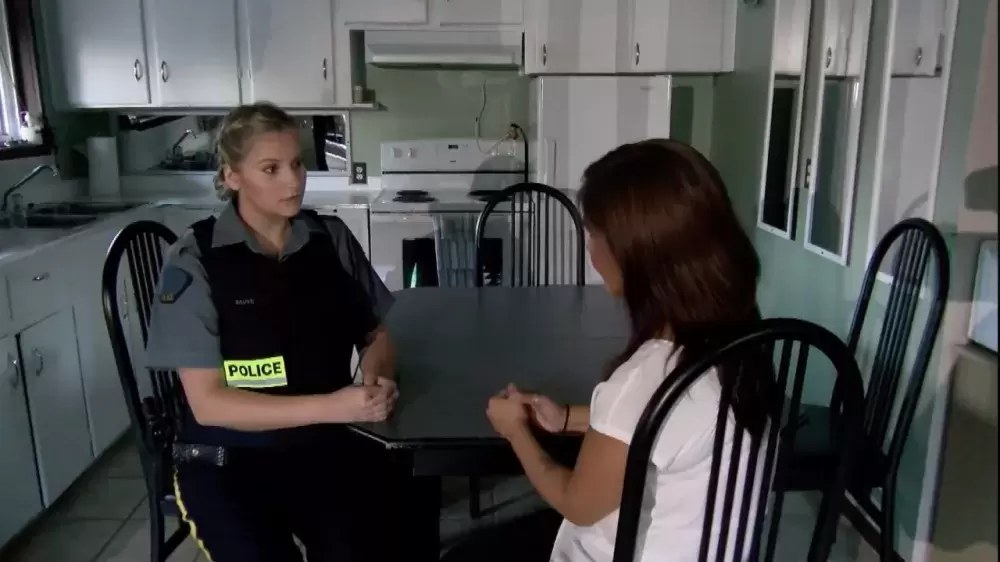Staying home may well be the best safeguard against spread of COVID-19, yet social isolation is no friend to victims of domestic violence.
Abusers typically attempt to isolate their victims from social supports as a means of control. Social isolation for them is an enabler.
Emergency shelters, counsellors and support groups know this all too well and could see a wave of domestic violence cases coming their way as an indirect consequence of the global pandemic. As precautions were ramped up and countless doors slammed shut, they have kept doors and phone lines open, adopting special measures to handle increased needs.
“We’ve already got a bad domestic violence problem in our community,” said Ellen Frood, executive director of Alberni Community and Women’s Service Society (ACAWS).
ACAWS serves families in the Alberni Valley as well as west coast Island communities, not including Tofino and Ucluelet.
“We are seeing an increase,” Frood said. “We just know that this isolation is steering people in many different ways.”
According to a statistical profile released last year by the Canadian Centre for Justice Statistics, there were more than 99,000 incidents of family violence — or more specifically “intimate partner violence” (IPV) — reported to police in 2018. Eight in 10 victims were women. Most incidents occurred in a private residence, often in homes shared by victims and abusers.
Statistics tell only part of the story since most domestic violence is believed to go unreported, but they shed light on contributing factors, rural living being a primary one. Women in rural areas experience IPV at a much higher rate than urban dwellers — 789 victims per 100,000 population compared with 447. Community-wide closures, quarantining and self-isolation may further strain relationships and stress levels.
Kuu-us Crisis Line Society — founded by Nuu-chah-nulth-aht in the 1990s and now a national service — has been exceptionally busy. Elia Nicholson-Nave, executive director, noted in an email that they have seen a spike due to COVID-19.
“They are about the fear of the unknown, the financial impact, where to go to get more information with the ever-changing government announcements, the mental stress of isolation,” she wrote.
At the same time, Kuu-us is receiving more expressions of gratitude from callers, a sense of comfort knowing that they are not closed, “providing a listening, supportive ear 24 hours a day,” said Nicholson-Nave.
Domestic violence is a strategic priority for Alberni RCMP, said Cpl. Amelia Hayden, detachment spokeswoman. Police are not seeing an increased number of domestic violence reports, but that doesn’t mean the situation is static, Hayden said. Third parties, often the first to report suspected domestic violence, are not reporting as often because of isolation. The eyes and ears of community are not there to witness or detect abuse.
“We’re not getting those reports because there is less social contact,” Hayden said. “It could be more than usual, however it’s not being seen and therefore it’s not being reported.”
A Campbell River support group has reported a decrease in calls to its 24-hour crisis line and suspects the reason for that is women are unable to speak over the phone with an abusive partner present.
When she first heard about Nova Scotia’s mass shooting in mid-April, Frood wondered if it was related to domestic violence. News reports later confirmed the killer’s rampage began with an assault on his girlfriend and continued until 22 victims lay dead. More than half of the victims were women, though the investigation has not drawn a direct link to misogyny.
Abusive partners use various tactics of behavioural control and manipulation. Social isolation enables this type of behaviour. At the same time, women are more inclined to be trapped in abusive relationships because the pandemic presents a major obstacle to leaving home.
ACAWS continues to provide alternatives, including counselling and 11 temporary emergency shelter beds at Port Alberni Transition House for women, kids and families experiencing abuse.
“We’ve had to adapt everything we’re doing in talking to people by telephone,” Frood explained.
They’ve also adopted texting as a new and more discreet means by which people trapped in abusive relationships can signal that they need help. If abused partners or youth can’t speak on the phone for fear of repercussions, they can text 250-206-1011.
“A day has not gone by when we haven’t had seen a text message asking about Transition House,” Frood said.
As part of its COVID-19 response in early April, Ottawa reconfirmed $30 million in funding for women’s shelters and sexual assault centres nationally. Funding includes a $10-million infusion for Indigenous Service Canada’s network of 46 emergency shelters on reserves. A portion of funding is going directly to shelters to manage or prevent a COVID-19 outbreak in facilities while another portion is flagged for family violence prevention programs.
ACAWS, which includes Nuu-chah-nulth First Nations in its service area, received $32,000, Frood said. The funds are being used to improve communications with clients as well as to provide socially isolated accommodation, putting clients in hotel rooms should that become necessary.
Relationship violence knows no cultural boundaries, victimizing Indigenous and non-Indigenous families alike. A woman is killed every six days in Canada. One in three women is impacted by domestic violence in her lifetime.
“Collectively, we have to see what difference we can make through education and counselling,” Frood said.
People caught in abusive relationships often don’t recognize the signs or they blame themselves. They are reluctant to report. Counselling can enable them to take back control of their lives by providing an understanding of the physical, emotional, mental and financial patterns of abuse.
“We’re often the first ones to say, ‘It’s not your fault’,” Frood said.
Port Alberni Transition House, the temporary emergency shelter, can be reached at 250-724-2223.







